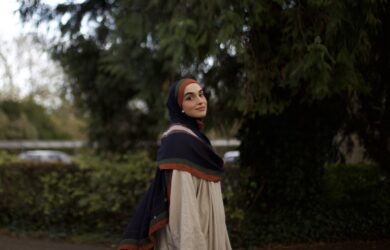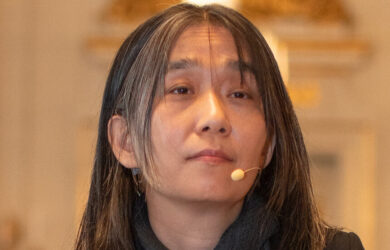Somali piracy has only recently come to international attention and Douglas Guilfoyle is one of the few international law experts in the field. His book on the subject is about to be released in paperback and he is also advising a UN-sponsored body on how to tackle the legal issues around piracy.
Douglas, who did a PhD in Legal Studies funded by a Gates scholarship, specialises in high seas law enforcement. At the time he was doing his PhD, this mainly covered things like fisheries management, drug smuggling and unauthorised radio broadcasting. Piracy was a subset.
In 2007 when he submitted his PhD piracy was mainly limited to the South China sea and the Malacca straits. “It was just small scale burglary,” he said. There was a rising trend off Africa, but no-one was paying much attention to it. By 2008 it was a big issue. “I realised I would have to update the book I was writing based on my PhD,” said Douglas.
While there was a legal literature on issues like piracy and drug smuggling, it was often historical and not always focused on the practicalities of law as applied in real cases by navies and coastguards, says Douglas. There was very little literature on piracy and drug smuggling, particularly on legal issues. The book, Shipping Interdiction and the Law of the Sea, is being re-released as a paperback in September by Cambridge University Press. Douglas says feedback from coastguard and military organisations has been good. “People say they find it very helpful,” he says.
The book has earned him a bit of a reputation as an expert in the field, which has led to opportunities for a closer involvement in emerging international policy on piracy.
After his work on piracy became known, he got an email one morning from the Danish Foreign Ministry who wanted to put together a report on treaty-based jurisdiction over piracy. “It was a case of seizing an opportunity,” he said.
The report was for the legal issues working group of the Contact Group on Piracy off Somalia and was prompted by a UN resolution which called for the international community to set up a cooperation mechanism around Somali piracy. The working group is one of four which update member states on piracy. The legal issues working group is mainly made up of government lawyers and lawyers from international organisations as well as industry representatives. And Douglas. “I’m the only independent academic in the room,” he says. He says there is an opportunity as an academic to talk about very practical issues which feeds into his research and takes it in new directions, such as the impact of human rights on counter-piracy.
He sees a whole host of new issues arising in the next few years, such as the shipping industry making more use of armed private security firms to protect their ships.
Douglas took his undergraduate degree in history and law at the Australian National University in Canberra. After graduating from university, he practised in a commercial law firm in Sydney. He says he came to the conclusion that other areas of law, such as public and constitutional law, were more interesting so he became an associate to two federal judges and worked largely on administrative law cases.
He then decided he wanted to go back to university and he was interested in attempts to stop the spread of weapons of mass destruction, including by stopping and searching ships at sea. For his masters dissertation he chose a case study of proliferation of WMD by sea. “I realised that it was far more likely to happen as a peacetime activity than as part of war and that there were broader issues,” he said.
For his PhD he focused on the ‘peacetime’ examples of stopping and searching ships at sea that led to his book on high seas law enforcement. Based at Trinity Hall College, he says both the international and multi-disciplinary nature of Cambridge college life and the Gates scholarship programme were helpful for his research. “In law, there was a critical mass of international law students doing PhDs, far more than at other institutions. That meant you could see relations between different issues,” he states.
Douglas, who now lectures at University College London, still lives in Cambridge. He says he really enjoys teaching. “I wouldn’t be as happy to do pure research. I find the interaction with students very fulfilling,” he says.












